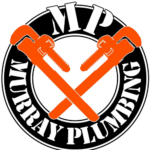Water leaks can cause serious damage to your home. They increase water bills, waste water, and lead to structural damage. Identifying water leaks early helps you save money and protect your home. Follow these simple tips to find water leaks.
- Check Your Water Meter Locate your water meter. Turn off all water inside and outside the home. Check the meter reading. Wait for two hours without using any water. Check the meter again. If the reading changes, you may have a leak.
- Inspect Faucets and Showerheads Look closely at faucets and showerheads. Drips are easy to spot. Even slow drips waste water over time. Tighten connections or replace worn washers to stop leaks.
- Examine Toilet Tanks Add a few drops of food coloring to your toilet tank. Wait 10 to 15 minutes. Do not flush during this time. If color appears in the bowl, you have a leak in the flapper valve.
- Look for Water Stains Check ceilings and walls for yellow or brown stains. Water stains indicate a leak behind the surface. Inspect around sinks, bathtubs, and appliances for any discoloration or soft spots.
- Monitor Water Bills Compare your monthly water bills. A sudden spike in water use without changes in habits could signal a hidden leak.
- Listen for Sounds Turn off all running water and listen carefully. Sounds of dripping or running water suggest a leak. Pay attention near walls, floors, and appliances.
- Check Outdoor Areas Inspect hoses, spigots, and sprinkler systems. Look for puddles or muddy spots that stay wet. This can mean a leak underground or in the irrigation system.
- Test Shower Tiles and Caulking Press gently on shower tiles. Loose or soft tiles may indicate moisture behind the wall. Examine caulking for cracks or mold growth. Repair damaged caulking to prevent leaks.
- Watch for Mold and Mildew Mold and mildew grow where moisture is present. If you notice a musty smell or visible mold, there may be a hidden leak.
- Check Under Sinks Open cabinets under sinks. Look for wet spots, pooling water, or warped wood. Leaks in pipes under sinks are common.
- Inspect Water Heater Check the water heater for drips or pooling water. Examine connections and valves for signs of corrosion or rust.
- Watch Your Lawn An area of grass that is greener or grows faster could point to a leaking water line underground.
- Feel Your Walls and Floors Touch walls and floors near plumbing fixtures. Damp or cold spots may indicate a water leak inside.
- Look at Washing Machine Hoses Inspect hoses behind the washing machine. Cracks, bulges, or leaks can develop over time. Replace hoses if damaged.
- Examine Dishwasher and Refrigerator Check under and behind these appliances. Look for puddles or signs of water. Water supply lines to these units can leak.
- Pay Attention to Water Pressure If you notice reduced water pressure, this can signal a leak somewhere in the plumbing.
- Observe Foundation Cracks Small cracks in the foundation are normal. However, larger cracks or those that widen could result from water leaks near the foundation.
- Watch for Peeling Paint or Wallpaper Moisture behind walls causes paint or wallpaper to bubble or peel. This is a sign of a water leak inside the wall.
- Check Attic and Crawl Spaces Inspect attics and crawl spaces. Look for water stains, mold, or damp insulation. Roof leaks or pipe leaks can show here.
- Use Leak Detection Devices Install water leak detectors near appliances and plumbing fixtures. These devices sound an alarm when they detect water.
- Watch for Hot Spots on Floors In homes with slab foundations, a hot spot on the floor may indicate a leaking hot water line.
- Monitor Swimming Pools If you have a pool, monitor the water level. If it drops more than normal evaporation allows, check for leaks.
- Inspect Bathtub Edges Check the edges where the tub meets the wall. Cracked or missing caulk can allow water to seep behind the walls.
- Look for Water in Unusual Places Water puddles in unusual places, like the basement or garage, suggest leaks. Investigate the source right away.
- Professional Help If you cannot locate the leak, call a plumber. Professional leak detection services use advanced tools to find hidden leaks.
Conclusion Water leaks can cause damage and waste money. Check your home regularly using these simple tips. Early detection saves you from costly repairs. If unsure, call a plumbing professional for help.



